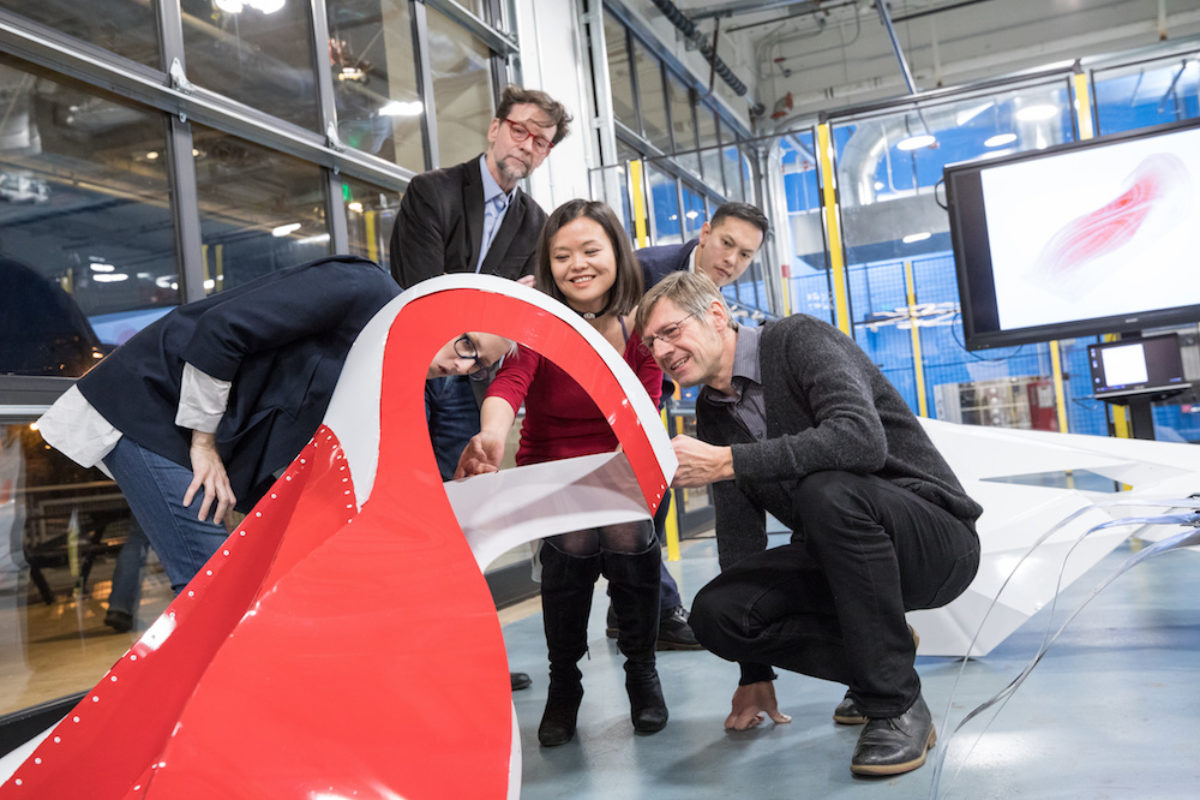The Harvard Graduate School of Design’s Martin Bechthold has been honored with a research grant in the sixth round of Harvard’s Climate Change Solutions Fund (CCSF), established in 2014 by President Emerita Drew Gilpin Faust to encourage multidisciplinary discovery around climate change. Bechthold and his three co-investigators, including the GSD’s Jonathan Grinham, were recognized for their project “Cold-SNAP: Cooling Your Building Without Heating Our World,” an effort toward designing better, more sustainable air conditioning for residential and commercial buildings.
Bechthold currently serves as director of the Doctor of Design Studies program and the Master in Design Engineering program, as well as the Kumagai Professor of Architectural Technology, while Grinham is a Lecturer in Architecture and Research Associate. With “Cold-SNAP,” Bechthold and Grinham are collaborating with Joanna Aizenberg, Amy Smith Berylson Professor of Materials Science and Professor of Chemistry and Chemical Biology (FAS/SEAS); Jack Alvarenga, research scientist at the Wyss Institute for Biologically Inspired Engineering.
As the Gazette observes, Bechthold and his collaborators aim to design build a better air conditioner, with a focus on developing co-extrusion ceramic manufacturing methods with a high-efficiency, retrofittable indirect evaporative cooling (IEC) system. The team intends their design to serve residential and commercial buildings in hot-dry and hot-humid climates.
Early-stage research has shown that cold-SNAP IEC systems “can achieve high cooling capacity with no added moisture and low system energy,” the Gazette writes. “The funding from the CCSF will help enable next-generation IEC systems and facilitate a full-scale pilot program with a ceramic manufacturer and potential industry stakeholders.”
Among the other projects supported by this year’s CCSF cycle include how the timing of clean-technology research and development interacts with the shapes and timing of policy-making and policy scenarios; efforts toward accelerating data science and data access on climate-change exposures in order to mitigate climate change’s health consequences; and new, more-accurate methods of quantifying forest canopy structure in order to support forest preservation and restoration projects.
CCSF aims to support and inspire the University’s transition from nonrenewable energy sources to a more-sustainable system. To date, 50 CCSF projects have received more than $6 million in University support; this year’s cycle awarded $1 million to eight projects.
“Harvard has made significant progress toward reducing emissions, improving health in the built environment, and shaping policies and industries in pursuit of a more sustainable future,” Harvard President Larry Bacow said on July 10, when the grants were announced. “Our goals — a fossil-fuel-neutral campus by 2026 and fossil-fuel-free campus by 2050 — are within our reach because our dedicated researchers and scholars are advancing knowledge and driving progress that connects and amplifies all of our sustainability efforts.”
Awarded just before Harvard closed its doors and gates in response to the COVID-19 pandemic, this year’s CCSF grants enabled recipients to begin their research and work in advance of camps closures. As the Harvard Gazette describes, CCSF’s review committee “targets innovative research projects at each of Harvard’s 12 Schools, giving special consideration to those that use the campus as a living laboratory. Eligible projects test ideas that address global sustainability challenges and align with the priorities in the with the priorities in the University’s Sustainability Plan and the climate goals outlined by Harvard’s Presidential Committee on Sustainability and the Office for Sustainability.”
At the GSD, Bechthold teaches courses in design robotics and material systems, building structures, as well as life cycle design. Bechthold’s research broadly looks at material and fabrication technology as a catalyst of innovation for design practice. In 2010 he founded the GSD’s Design Robotics Group and recently merged it into the Material Processes and Systems (MaPS) Group, a collaboration of faculty, research associates, and students that pursues sponsored and other research projects. Bechthold has also served as a key University faculty member in the development, launch, and advancement of Harvard’s collaborative Master in Engineering (MDE) degree program.
As Lecturer in Architecture and Research Associate, Grinham’s work asks how the design of conventional and emerging material technologies can address the question of energy and where we get it. This question has led to the development of novel technologies and publications around vascular-thin-film heat exchange, nano-scale thermal tuning, and the coupling of breathable materials to buoyancy-driven ventilation. These topics are complemented by Grinham’s other research interests that track themes in robotics, kinematic structures, embedded computation, and automated fabrication workflows.
Learn more about this year’s eight Harvard CCSF awardees via the Harvard Gazette.
